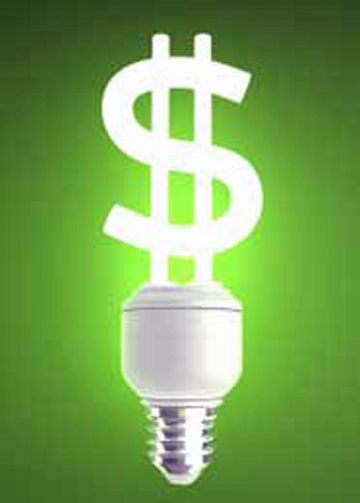
The cost of programs designed to save energy works out to 4.4 cents per kilowatt hour, less than half of what power from a conventional coal-burning plant costs, according to an analysis from the Lawrence Berkeley National Laboratory.
The authors of the report, released in mid-November, collected energy efficiency information from more than 100 program administrators in 34 states, covering 5,900 “program years” between 2009 and 2013. They looked at a number of residential efficiency programs, including programs that subsidize whole-house retrofits, lighting improvements, appliance swaps, and efficiency measures for electronic devices.
Overall, the authors found that the cost of saved energy (CSE) was 4.4 cents/kWh, with residential programs having the lowest cost (3 cents/ kWh); commercial, industrial and agriculture programs followed at 5.6 cents/kWh.
This compares with the 9.5 cents/kWh for producing electricity in a conventional coal plant, Merrian Burgeon writes in a blog for the Natural Resources Defense Council.
“This means that smarter uses of energy can replace dirty coal at a fraction of the cost of building coal plants to generate electricity (and without polluting our air or exacerbating climate disruption),” she says.
Weekly Newsletter
Get building science and energy efficiency advice, plus special offers, in your inbox.














2 Comments
Excellent article.
Excellent article, Scott. Thank you. A small correction: you reference the "National Resources Defense Council" but that fine group is the Natural Resources Defense Council, http://www.nrdc.org. The overall point of the article, that efficiency is cheaper, faster, and easier than installing new generating capacity, is vitally important for policy-makers and the public to understand. Thanks again!
Response to David Foley
David,
Thanks for catching the typo. It's been fixed.
Log in or create an account to post a comment.
Sign up Log in